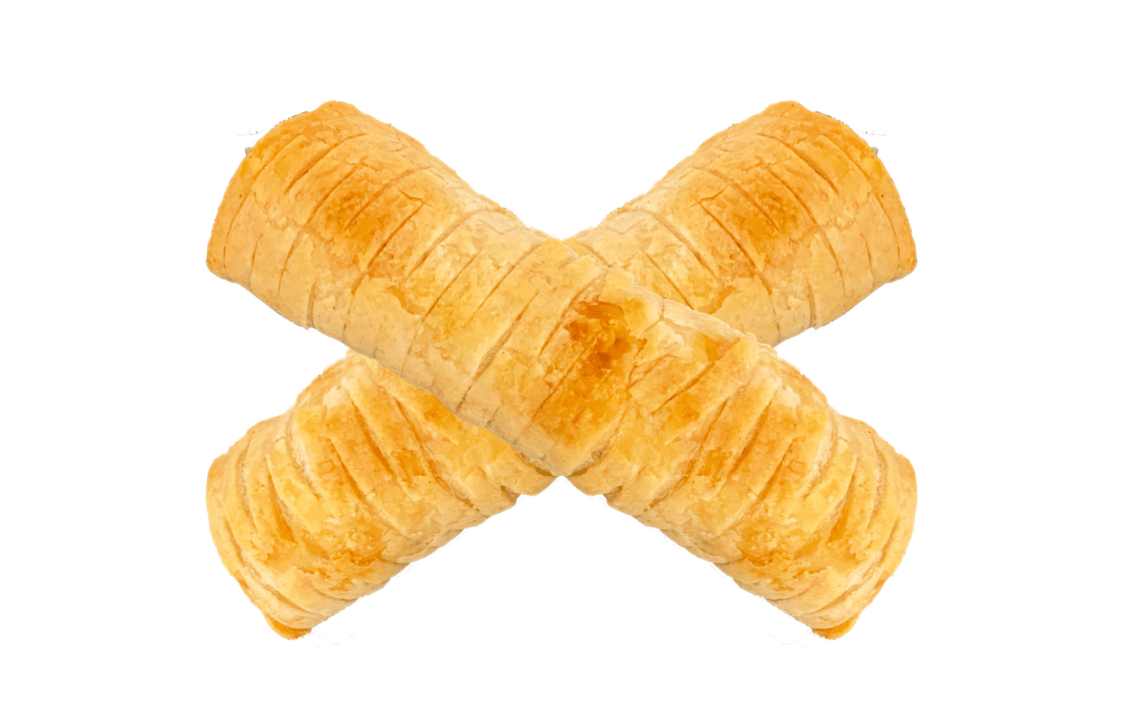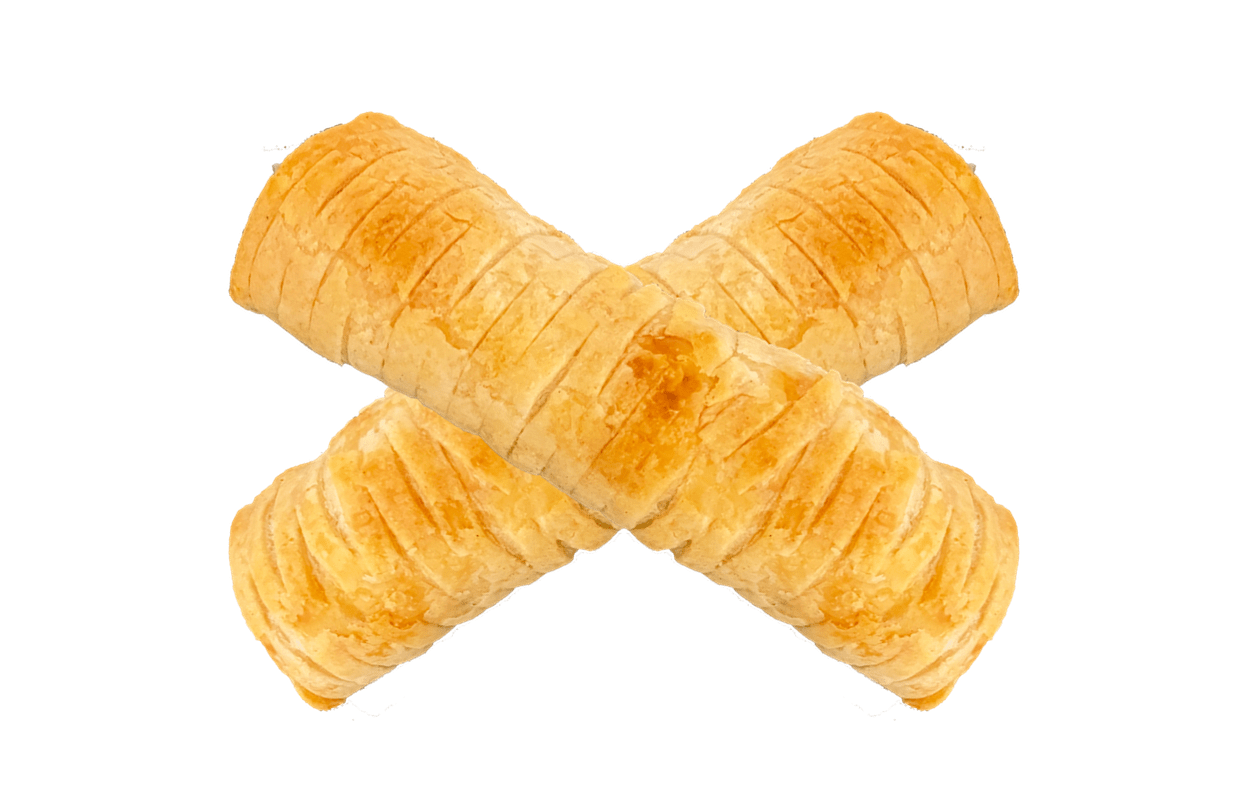Everything about Greggs is fake. You can smell it as you walk down any British high street. There’s an astringency, a hint that what lingers in those ovens is more than butter, flour, eggs and salt – that their food has been adulterated with something unnatural. What you’re smelling is an approximation of pastry, an attempt by the Greggs customer development unit to ‘curate an authentic baked goods experience’.
Of course, we all secretly know the food is fake. The texture of the baguettes suggest that they’ve been salvaged from a 1970s deep freezer found buried beneath a Midlands business park. And the fillings. All that slimy pink ham. The medical cross-sections of boiled egg. The industrially-developed salad, precision engineered to survive for weeks and taste of nothing. The thick, engorged slabs of white flesh, smeared with a compound of mayonnaise and the dregs of a packet of Bombay mix that is, somehow, labelled ‘tandoori chicken’.
Greggs wants you to think it’s a fun British staple, that its steak bakes belong alongside a pint of Stella or Madri
And that’s before you get to the sausage rolls. Oh, the ‘cheeky’ Greggs sausage roll. Puff pastry is supposed to flake into fragile, translucent, golden shards. Yet the Greggs sausage roll is normally undercooked, most of the time it’s served cold and it is always, always greasy. It cloys to your tongue and the top of your mouth, clogging up the gap between your cheeks and teeth. Much like a Nandos, the adjective ‘cheeky’ really means ‘depressingly mediocre’.
I could go on. The sausage? I could describe the salty, strangely tasteless tube of meat in the middle of a Greggs sausage roll. I could tell you it isn’t worthy of the name ‘sausage’ or that it doesn’t really deserve the title ‘meat’ either. I could say that beneath the blandness sits the uncanny sweet tang of pounded gristle which you’d never find in a real butcher’s banger. I could tell you that there’s something horribly sad about those multi-packs of freezable Greggs sausage rolls – the fourth is free! – or I could say they’re a gastronomic Prozac for those Saturday mornings when you realise that no one really likes you. But you know all that. And deep down, you know that everyone else knows it too.
Because in truth, Greggs is a phenomenal example of how good marketing can trump everything – even the lack of an enjoyable product. The company has managed to hijack a part of British identity using carefully designed gimmicks, like its jocular social media presence or Primark clothing range.
Greggs is a catering chain that has built a confected version of the northern spirit; a FTSE250 company that wants you to think it’s an unflappable upstart, uninterested in poncey southern obsessions like flavour. What they sell is sugary, carby fuel that is, crucially, cheap (never mind the fact that a Greggs tuna crunch baguette costs £4 in London, almost on a par with Pret’s offering). Greggs wants you to think it’s a fun British staple and that its steak bakes belong alongside a pint of Stella or Madri. In fact, they’ve spent millions trying to convince you of their easy-going Englishness.
But I remember going to the local bakery after school with my mum and sisters to buy a Chelsea bun or sticky willy (an iced bun, to the more puritanical among us). The shop was technically an independent, although ‘independent bakery’ now means a place that provides only sourdough and usually for around £5 a loaf. Instead, this was a place that was run by a couple of kindly old ladies who sold pastries to schoolchildren and builders. Nothing fancy – but decent – and obviously long gone.
I remember, too, when I first moved to London, seeing those old-fashioned sandwich shops. Inevitably they involved a panini press, a pile of chicken escalops and a tub of margarine. The sandwiches were laid out behind a glass counter and were clearly made that morning, probably next to the till. Since I joined The Spectator, three of the four that existed within a five-minute walk of the office have gone under.
Greggs, I think, is partially to blame. It’s the equivalent of what Wetherspoons is to real pubs: a rip-off, mass-produced attempt to undercut a struggling part of British culture. But unlike Wetherspoons, which one enters with a sense of shame, Greggs asks us to revel in the pact of price over personality. You will buy your tasteless pastry – forgetting that you’re starving a family-run bakery or sandwich shop down the road – and you’ll enjoy it. After all, it’s just a cheeky Greggs.







Comments